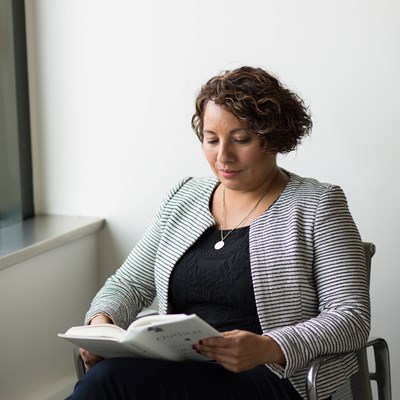Martha's Story

“I have always had very painful periods. My flow is very heavy and the pain in my back is so strong I can barely get out of bed some days. The process of being diagnosed with Endometriosis has been long and difficult. At first when my dad took me to the doctor, they didn’t believe me – I remember they spoke only to him, as if I wasn’t there. He explained how I would lie in bed groaning, and sometimes faint. They told me to take paracetamol. Eventually I went on the pill which helped with my symptoms, but it made me gain weight, and I didn’t feel like myself. It took years to get a referral to an Endometriosis clinic, and I still haven’t had the surgery I need. Now I work long hours in the lab. There’s a lot of standing up, and when you’re in the middle of an experiment you can’t just take a break. I always have to balance taking strong painkillers that make me feel nauseous and a bit cloudy, with being in too much pain to function. Some days I just can’t go into work, but I’ve never told my boss. I don’t think he would understand.”
What can Martha’s lab do to support her?
Check to see the solutionThe university has recently undertaken a review of gender equality at work. As part of this process Martha submitted anonymous comments about support for people with endometriosis. To her surprise, the issue was later raised at a staff meeting and she finally felt able to speak out. Faculty members in the arts and humanities are allowed flexible working, doing their allocated hours, but at times that suit them. Martha spoke about allowing scientists to do the same, and was pleased that her lab group agreed. Now she can work at her own pace during the difficult days, sometimes staying at home if she needs to, without feeling judged by her peers.
Related Stories
